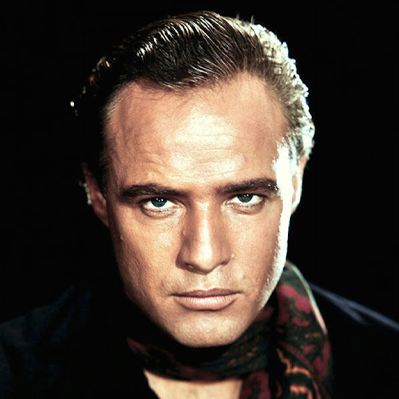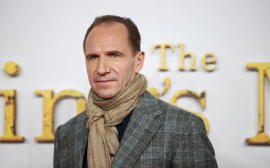Marlon Brando was an American actor and activist. Considered one of the greatest actors of the 20th century, he received numerous accolades throughout his career, which spanned six decades, including two Academy Awards, two Golden Globe Awards, one Cannes Film Festival Award and three British Academy Film Awards. Brando is credited with being one of the first actors to bring the Stanislavski system of acting, and method acting, to mainstream audiences.
Brando fell under the influence of Stella Adler and Stanislavski's system in the 1940s. He began his career on stage, adeptly reading his characters and consistently anticipating where scenes flowed. He transitioned to film, initially gaining acclaim and his first Academy Award for Best Actor nomination for the role of Stanley Kowalski in A Streetcar Named Desire (1951). He received further praise and his first Academy Award and Golden Globe Award for his performance as Terry Malloy in On the Waterfront (1954), which remains a watershed moment in the history of Hollywood, and his work continues to be studied and interpreted. His portrayal of the rebellious motorcycle gang leader Johnny Strabler in The Wild One (1953) became an emblem of the era's generational gap.
The 1960s saw Brando's career take a commercial and critical downturn. He directed and starred in One-Eyed Jacks (1961), a commercial flop, after which he delivered a series of notable box-office failures, beginning with Mutiny on the Bounty (1962), which damaged his career. After ten years of underachieving and markedly diminished interest in his films, he starred as Vito Corleone in The Godfather (1972), which helped him win his second Academy Award and Golden Globe Award in a performance considered among the finest in the art form's history, based on extensive surveys of critics, directors, and other actors. With this and his Oscar-nominated performance in Last Tango in Paris (1972), Brando reestablished himself in the ranks of top box-office stars.
After a hiatus in the early 1970s, Brando was generally content with being a highly paid character actor in supporting roles of varying quality such as Jor-El in Superman (1978), as Colonel Kurtz in Apocalypse Now (1979), and as Adam Steiffel in The Formula (1980) before taking a nine-year break from film. The last two decades of Brando's life were marked with controversy, and his troubled private life received significant attention. He struggled with mood disorders and legal issues. Brando continues to be held in high regard and respected.
















































